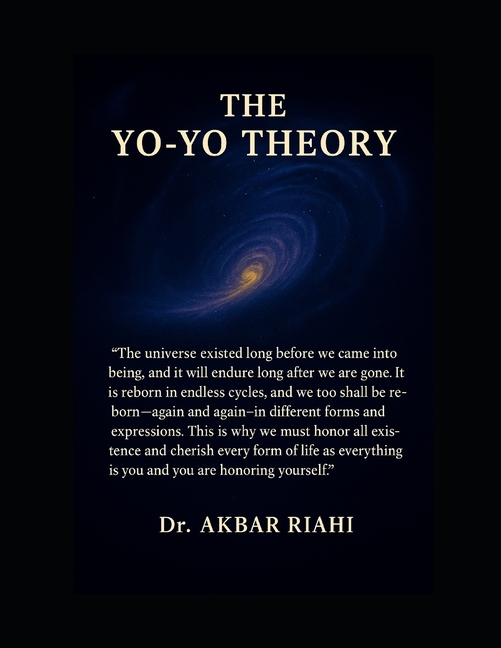Description
The Yo-Yo Theory proposes a revolutionary cosmological framework in which the universe is eternally cyclic, driven by the dynamics of black holes and gravitational collapse. Inspired by the motion of a yo-yo-where tension, momentum, and return are part of a continuous process. This theory envisions the cosmos as undergoing infinite cycles of expansion and contraction.
The theory posits that during each "Big Bang" event, the vast majority of mass-energy transforms into elementary particles, while a small fraction remains in the form of primordial black holes. These black holes, expanding with the universe, form a gravitational boundary at the cosmic edge. Over time, as all matters accelerate outward, it is gradually recaptured by these boundary black holes. As they accumulate mass, their mutual gravitational attraction eventually halts expansion, triggering a collapse that culminates in the formation of a new singularity-and the birth of a new cycle.
This book presents the foundational physics, mathematical framework, and observational implications of the Yo-Yo Theory. It draws on existing scientific principles while addressing their limitations and offering a bold, coherent alternative grounded in the logic of gravitational inevitability and black hole dynamics.
Product Details
- Jul 7, 2025 Pub Date:
- 9798291198704 ISBN-10:
- 9798291198704 ISBN-13:
- English Language




